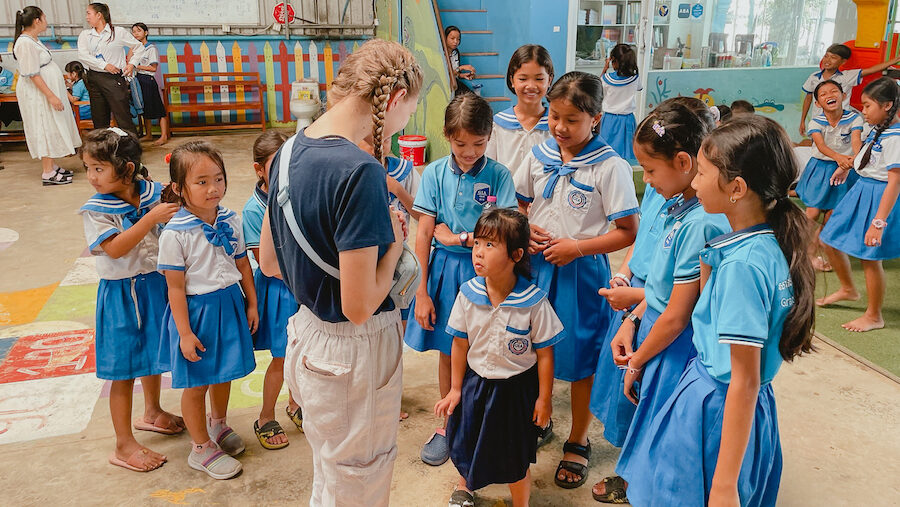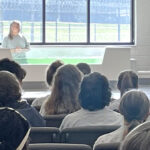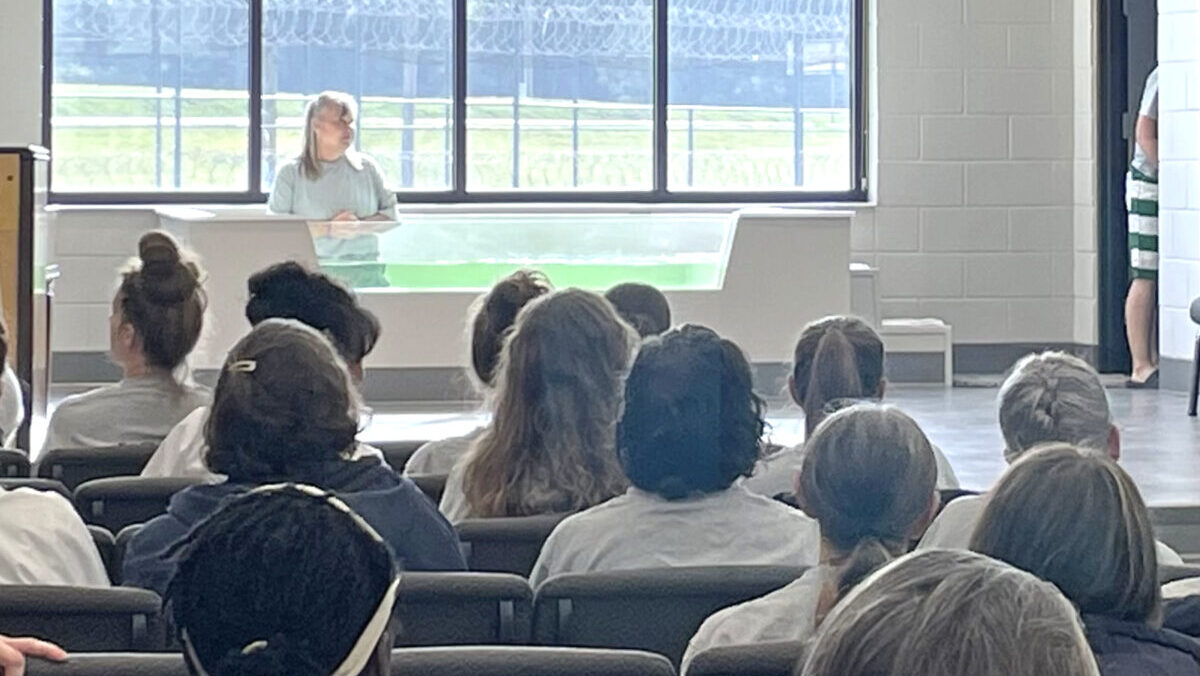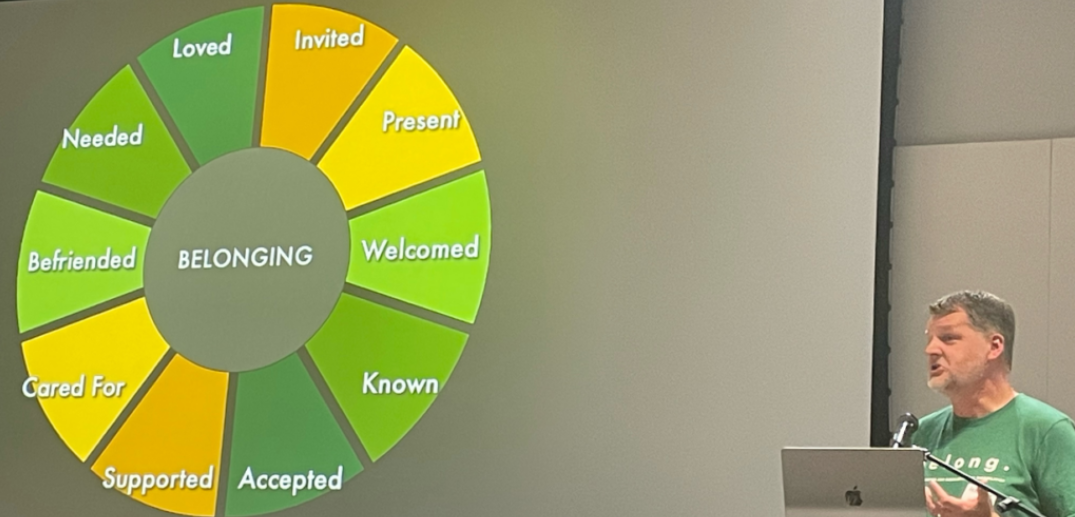While recently serving in Cambodia on a missions trip with Southwestern Baptist Theological Seminary, master of divinity student Haylee Grace* learned that “missions will be more of a sacrifice than I thought it would be.”
Grace, a Fort Worth native who is called to overseas missions, was one of five students on the team led by Michael Copeland, assistant professor of missions and associate director of the World Missions Center at Southwestern.
This was Grace’s first overseas mission trip after trying for three years to serve on an international team. She said the Sept. 30–Oct. 8 trip “showed me that not every situation will be comfortable for me, but I still need to trust God and lean on Him.”
‘Flexibility,’ ‘servant heart’
The students learned the missionary lessons of “flexibility” and a “servant heart” when their original agenda changed “because the workers faced different kinds of emergencies” related to extending their visa, explained Chris Choi*, a master of divinity student from East Asia.
Despite the adjustment in schedule, Copeland said among the team he saw “encouragement to local church planters and their missionary partners as we arrived ready to serve their varying ministries.”
Cambodia is a nation “still recovering from drastic depopulation due to events of the last half of the 20th century” that also has seen an increase in children born over the last two decades, Copeland said. Due to economic hardships the country faces, “most youth do not have adequate opportunities for education.”
The result is that outside Phnom Penh, the nation’s capital and most populous city, children “might go to school until grade six and only half days for whatever time they are able to attend,” Copeland said.
“Many church planters and churches try to fill the gap by offering to board and care for the many children who are abandoned by parents who cannot afford to feed them,” he added.
“They have done this by opening schools, which fulfill the basic governmental education required and add supplemental education — including teaching English or Chinese — languages often sought after as giving more economic opportunities. These schools add to the education opportunities of children enrolled — whether those needing boarding or those whose families can pay.”
This allows local churches and church planters “opportunities to provide a living for themselves, a way to bless and serve their communities, and opportunities to share Christ,” Copeland noted.
‘Impromptu lessons’
The Southwestern students taught “impromptu lessons, taking opportunities to share the gospel through varying biblical stories,” he said. “In doing so, because the lessons were in English, our students were able to aid the schools’ reputations in the communities and engage the children — ages anywhere from 6 to 13 — with the gospel.”
Choi noted the needs of the schools the team served.
“We went to several schools which are in big need for good language teachers,” he related. “There are hundreds of kids who need to be reached in the villages. The parents and kids are looking [to learn] languages such as English and Chinese.”
Grace said the Southwestern team was used by God to “support the missionaries who work in Cambodia,” adding that one day the team rode three hours north of the city to work at a children’s shelter.
While there they played games with the children while the missionaries were able “to make connections with 17 churches and 30 pastors” as the students helped by keeping “the kids occupied while they talked,” Grace said.
“Cambodia is a current hub area for both missionaries engaging church planting in Southeast Asia and an area where many global mission partners come in order to train for mission work,” Copeland noted. “I wanted our students to both engage local and international church planters, as well as see how mission works with those being trained to engage missions from places around the world many Westerners would not expect.”
Unexpected moments
Grace said through the trip she learned that “God can use us in ways that we weren’t expecting.”
On one car ride she sat in the back talking with a daughter of one of the missionaries. While Grace “didn’t think anything about it,” she said the “missionaries told me later that it was a blessing to them and their daughter that I listened to her for so long, since she had just recently lost two close friends due to them moving away.”
The experience reminded Grace that she “must trust God in every circumstance.”
“Missionaries don’t move to third world countries just for fun,” she asserted. “They stay because they trust that God’s plan is the best for their life and others’ lives.”
She advocates for international mission trips “because it opens your eyes to how more of the world lives. It shows you that God is working in more of the world than just the bubble we live in.”
EDITOR’S NOTE — This story was written by Ashley Allen and originally published by Southwestern Baptist Theological Seminary. *Names changed for security.








